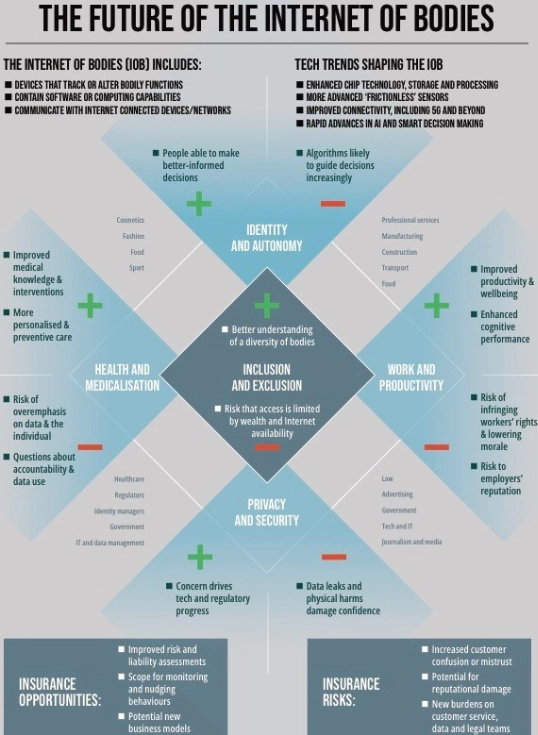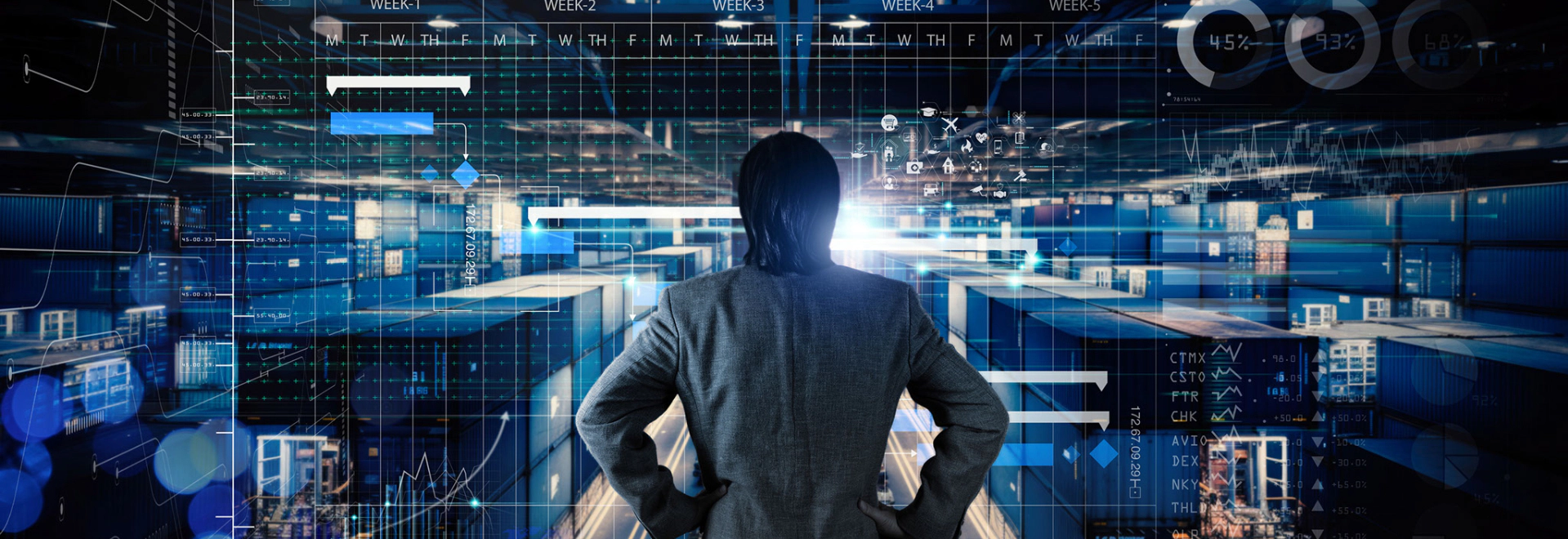NTT DATA Corporation ("NTT DATA"), NTT DATA INSTITUTE OF MANAGEMENT CONSULTING, Inc. ("NTT DATA IOMC") and SCHOOL OF INTERNATIONAL FUTURES (SOIF) ("SOIF") , UK-based think tank specializing in forecasting the future embarked on a collaborative research journey starting in January 2023.
Combining NTT DATA IOMC’s advanced data analytics capabilities with SOIF’s future forecasting expertise and methods, the project delved into the intricate world of the Internet of Bodies (IoB). This research focused on comprehensive mapping and analysis of the current IoB landscape, future scenarios, and potential challenges and considerations for technologists and policymakers.
Background
The evolution of the 'Internet of Things' (IoT) into the 'Internet of Bodies' (IoB) represents a significant shift in the technology landscape. Powered by advancements in sensor technology, AI, connectivity, and materials science, the IoB embodies the convergence of human physiology with software and hardware capable of monitoring or modifying its function. Andrew Curry, Director of Futures at SOIF, highlights these insights, stating:
“There are some obvious impacts of the Internet of Bodies. Issues about privacy and data come to mind, as well as managing the firehose of data that it creates. But by taking a broader look at the future of IoB, we also identified some more surprising issues for the insurance sector.
For example, there’s a real risk of confusing customers, or discriminating against some types of customers. But there are also opportunities to develop new business areas, such as providing assurance about the wellbeing of older relatives.”
This quote from Andrew underscores the depth of analysis and forward-thinking approach undertaken in the report, shedding light on both the challenges and opportunities that lie ahead in the IoB landscape. We are excited to share these valuable insights with our audience and drive conversations on the potential of IoB technologies in various sectors.
Overview of Collaborative Research
We took a multidimensional approach to understand IoB and we applied the Techology Axis Model from among the future forecasting methods used by SOIF, and through workshops with NTT DATA, NTT DATA IOMC and SOIF, we have listed the foresight that can be foreseen in the future, as shown in Exhibit 1.
The main implications are as follows.
Exhibit 1: Future opportunities and risks presented by the Internet of Bodies

Research Results
① Health and Medicalization
The development of devices that can track and alter an ever-wider range aspects of our bodies, in hospitals and care environments as well as in our everyday lives, creates enormous opportunities when it comes to understanding and managing the physical condition of those bodies.
② Work and Productivity
In the workplace, IoB applications range from existing wearables and implants that promise to track employees’ movements, attention and fatigue levels, to the potential for neural implants that might augment employees’ capabilities.
③ Privacy and Security
IoB technologies raise major questions around privacy and security, given the sensitive nature of the data being collected, the actors involved in collecting and analysing that data, and the scope for other actors to gain access to it through security failings in the technologies themselves.
④ Identity and Autonomy
IoB technologies can arguably be used by patients and consumers to help them better understand their own bodies, habits and behaviours, deepening self-knowledge and -direction and empowering them to make more informed lifestyle decisions and live more fulfilling, healthy, meaningful lives as a result.
⑤ Implications for the Insurance Sector
The implications of IoB are far-reaching, potentially opening up further swathes of information about individuals’ activities and behaviors, and creating new opportunities for shaping and ‘improving’ those behaviors.
About the future
The era of the Internet of Bodies will certainly arrive. There are already enough applications out there, in spaces as diverse as diabetes support groups to amateur sports groups, for this not to be the case. We expect to see innovation in the area of identification, authentication, and authorization.
There is a large literature now that suggests that both trust and security can be enhanced by new data architectures that disaggregate these different aspects of digital relationships. The insurance sector should be a trusted partner that helps to design and build these new architectures of trust.
This research report can be downloaded from the following link.
About School of International Futures (SOIF)
School of International Futures (SOIF) is a not-for-profit consultancy founded in London, UK in 2012 that specializes in future forecasting.
They use their strategic foresight to help local governments and private sector leaders make change happen for the better, including participating in the UK government's Next Generation Strategy review.
